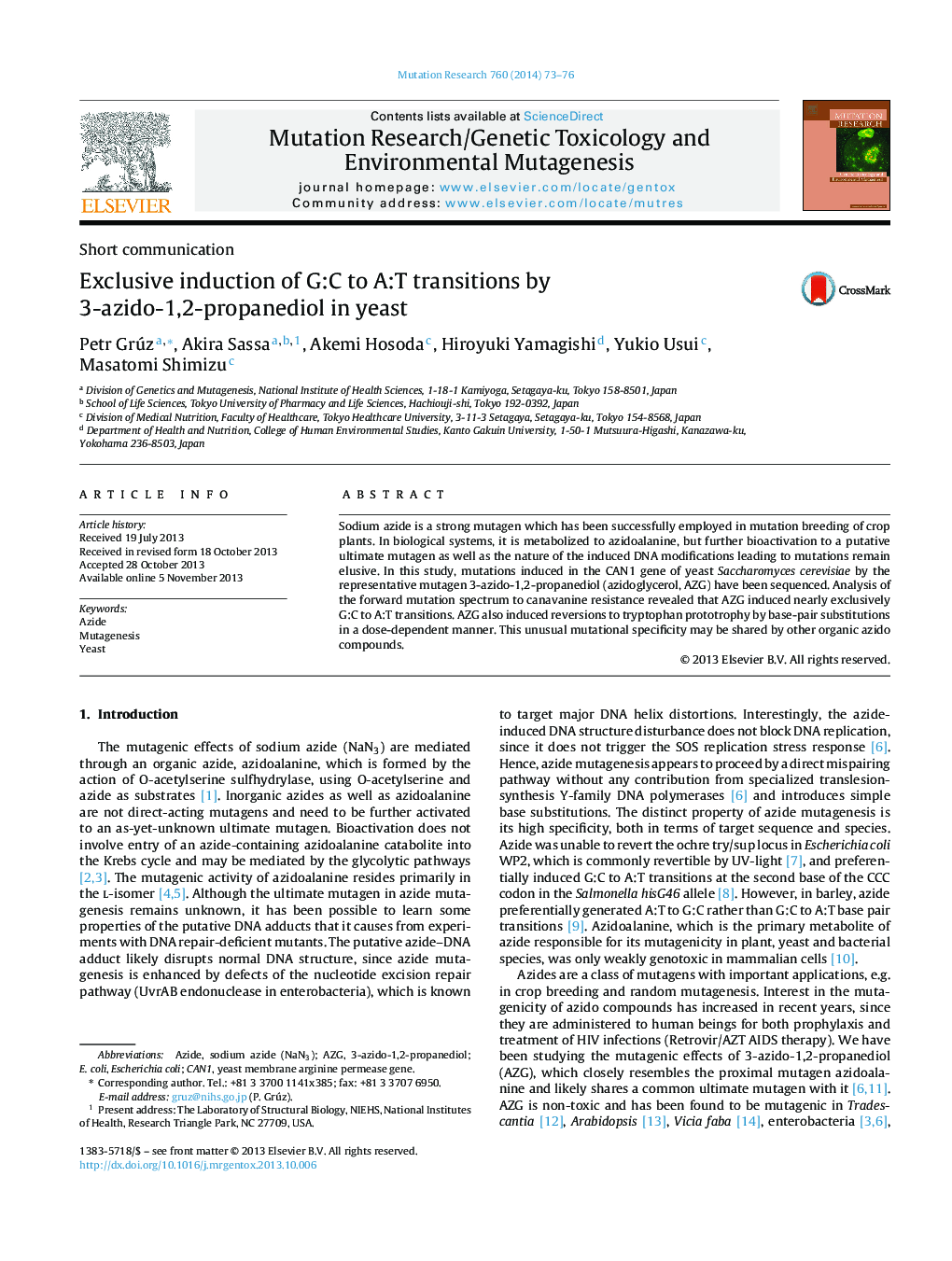| Article ID | Journal | Published Year | Pages | File Type |
|---|---|---|---|---|
| 2148005 | Mutation Research/Genetic Toxicology and Environmental Mutagenesis | 2014 | 4 Pages |
Sodium azide is a strong mutagen which has been successfully employed in mutation breeding of crop plants. In biological systems, it is metabolized to azidoalanine, but further bioactivation to a putative ultimate mutagen as well as the nature of the induced DNA modifications leading to mutations remain elusive. In this study, mutations induced in the CAN1 gene of yeast Saccharomyces cerevisiae by the representative mutagen 3-azido-1,2-propanediol (azidoglycerol, AZG) have been sequenced. Analysis of the forward mutation spectrum to canavanine resistance revealed that AZG induced nearly exclusively G:C to A:T transitions. AZG also induced reversions to tryptophan prototrophy by base-pair substitutions in a dose-dependent manner. This unusual mutational specificity may be shared by other organic azido compounds.
